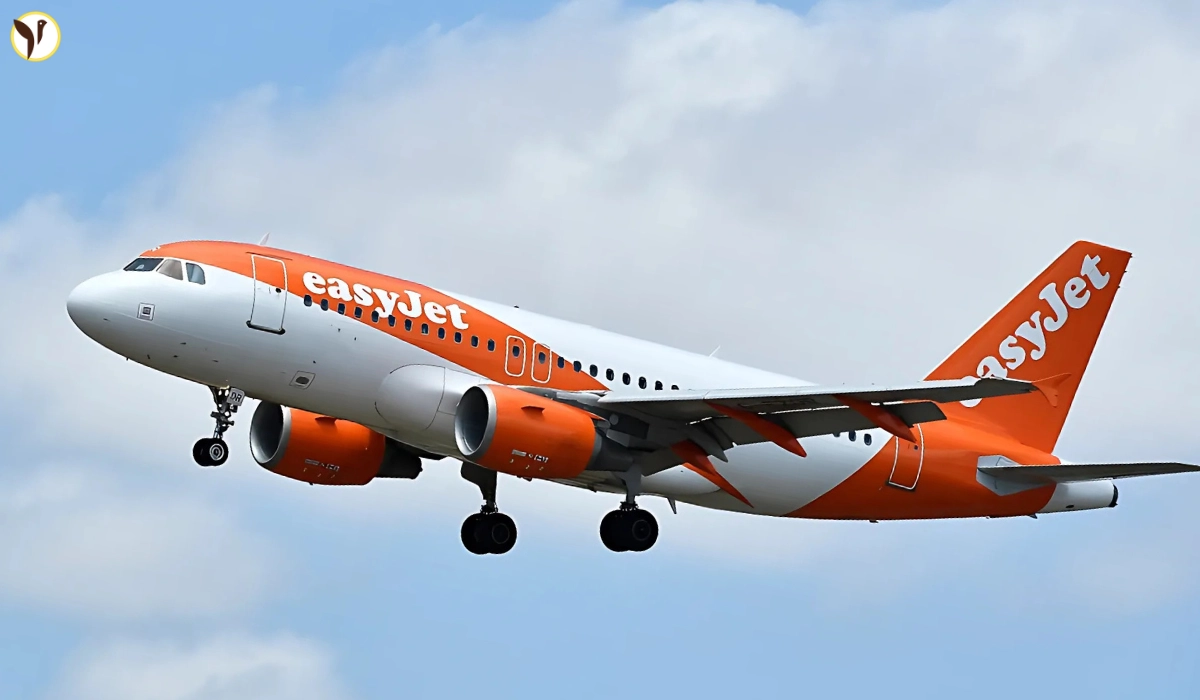It started like every other holiday flight. There was laughter and conversation, some people were watching movies on their phones, others were trying to catch some z's. Then someone noticed a little smell - kind of like smoke. Just a little smell. But enough to make someone frown and say, "that doesn't smell right". A few heads turned and before you knew it, passengers were whispering to each other, "do you smell that?" You know that feeling in your stomach when something doesn't feel right? That was what happened here. A smoke alarm went off around 36,000 feet while we were flying from Paphos, Cyprus, into Bristol in the UK. At that point, everything changed.
The pilots responded very quickly, and I think they exhibited an extraordinary composure in the stressful situation. They declared an emergency, and diverted the Airbus A320 to Izmir airport in Turkey. You could see the expressions of relief wash over the faces of the passengers once we landed in Izmir airport -- luckily no one was injured, but I could see that everyone's heart was racing. Children were startled, while the parents were returning their breathing to regular speed, while accommodating little ones and putting masks on their curious little faces while reading them gentle reassuring messages. It's unbelievably sad to think what it must have been like having a relaxed holiday flight, and then suddenly having to wait on a runway in a stressful situation. That little smell caused a real panic, and a safe landing was our only option.
What Made This Different—and Why It’s a Big Deal
This isn’t the first time something like this happened, but it’s still a rare event. EasyJet confirmed it was a technical issue that caused the smell—not flames or smoke resulting from a major fire, but a wiring or mechanical fault—they think. That's concerning because you never know what it is. Often a small wire issue or hot panel can set off alarms.
There are oftentimes few people have considered a couple of things: the cabin air system. When there is a smell that triggers alarm, it likely indicates something went wrong in the systems servicing the cabin and not just the aisle lighting or in the overhead compartments. The air is cycled through those systems quickly—remember when the whole cabin smells like burnt toast? Often that can be coming from the avionics bay under the floor. Most people do not think about that. That means easyJet and the ground crews likely spent hours checking and opening the hidden compartments. And that was why they had keep the plane on the ground overnight in Izmir—safety checks take time.
In addition, the Paphos flights use a lot of the older A320s during the busy summer season. Although pilots and engineers are usually diligent about maintenance concerns, frequent usage can turn small wear and tear into larger issues faster then one would think. EasyJet promised full inspections and claimed nobody risks safety. But maybe they will now change the frequency of these checks on critical systems - i.e., cabin fans, sensors, wiring - just to sense that slight burnt smell before passengers do.

Lessons Learned—and What Airlines and Travelers Need to Know
I feel like this event teaches us some hard truths about flying. First, smoke smell alarms are a big red flag—they’re not fake dramas. When they go off, pilots follow serious protocols: turn around, land, alert fire crews. Passengers need to follow crew instructions exactly, even if it feels like overkill.
Second, communication matters. EasyJet did a good job giving hotel rooms, meals, and replacement flights. Still, passengers said they wished they’d known more about what was actually wrong. A text or quick video update could ease anxiety when you’re stuck in a foreign airport late at night.
Third, this might prompt quicker tech checks across similar planes in EasyJet’s fleet. It could even lead to improved cabin sensor designs or better air system filtering—stuff you might never see but matters. For travelers, these tweaks are a win—they mean fewer scary diversions.
Another angle no one mentioned: emergency crews in Izmir said they saw two emergency vehicles meet the plane exactly on time. That suggests great coordination between the airline, ground control, and local authorities. But how often does that happen without real emergency? It seems like teams practice this way, which offers comfort.
Finally, families and kids caught mid-flight panic needed caring words and quick reassurance. That’s where crew training meets real life. When pilots, flight attendants, or even other passengers calm a kid scared of smoke, that’s real human connection. It’s not just about technical fixes—it’s about people caring for each other at 36,000 feet.
Quick Bullets You Didn’t Hear Elsewhere
-
Cabin air systems may hide electrical faults under the cabin floor—those get checked now.
-
High-use A320s on holiday routes like Paphos may get extra mid-season inspections.
-
Emergency crews in Izmir were prompt—shows good airport planning and drills.
-
Families reported a moment of silence followed by passengers supporting each other.
-
EasyJet may introduce live messaging updates when diversions happen.
This story is still moving—EasyJet crews are inspecting the plane now, and passengers should be back home soon. But it’s a real reminder: flying feels routine until it's not. Then, you're just 36,000 feet above the ground with a team of strangers keeping you safe. And that teamwork—pilots, crew, emergency crews, support teams—is what brings you home.
Image Source: AFP









